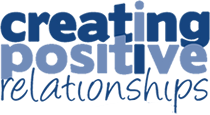Today’s young people need the knowledge, ability and desire to develop and sustain healthy relationships. Uninformed and unhealthy attitudes about relationships and sex lead to unhealthy behaviors. Young people and parents require information and opportunities to discuss relationships and sex.
Knowledge – Young People and Parents are uninformed about youth relationships and sex.
- 80% of teens aged 12-19 say that it would be much easier for teens to delay sexual activity and avoid teen pregnancy if they were able to have more open, honest conversations about these topics with their parents.[i]
- 87% of teens aged 12-19 say that it is important for teens to be given a strong message that they should not have sex until they are at least out of high school (Ibid).
- Teens 12-19 say that parents (46%) most influence their decision about sex. By comparison, 20% say friends most influence their decisions (Ibid).
- About 60% of teens aged 12-17 find it easy to talk to their parents about relationships.[ii]
- Over half of teens aged 12-17 believe that parents should start talking with their kids about sex, love, and relationships when their kids are 13 or 14 years (Ibid).
- Almost one-third of teens aged 12-17 say the conversation should start even earlier — at age 12 or younger (Ibid).
Ability – Young People possess uninformed and unhealthy attitudes about relationships and sex.
- 87% of teens aged 12-19 believe that sharing nude or semi-nude images of themselves or other teens electronically through cell phones, websites, and/or other social media networks leads to more sex in real life.[iii]
- 73% of males aged 15-22 say they have more respect for girls who say no to sex.[iv]
- 66% of males aged 15-22 say they agree that they could be happy in a relationship that does not include sex (Ibid).
- 29% of teens 15-17 reported feeling pressure to have sex.[v]
- Most teens aged 12-19 (93% of girls and 88% of boys) say they would rather have a boyfriend/girlfriend and not have sex than have sex but not have a boyfriend/girlfriend.[vi]
Desire – Young People choose unhealthy behaviors regarding relationships and sex.
- 24% of sexually active teens 15-17 had “done something sexual they didn’t really want to do (Ibid).”
- Twenty-two percent of sexually active students report using alcohol or drugs during their most recent sexual encounter.[vii]
- Nearly one in four sexually active teens is living with an STI (sexually transmitted infection) at this moment.[viii]
- Teens aged 12-17, over the period of 3 years, who viewed the most sexual content on TV were about twice as likely to be involved in a pregnancy as those who saw the least.[ix]
- 39% of teens aged 13-19 say that they have electronically sent, or posted online, sexually suggestive messages via text, email and/or IM.[x]
- 15% of teens aged 13-19 who have sent or posted nude/semi-nude images of themselves say they have done so to someone they only knew online (Ibid).
- Compared to sexually active teens, teens who abstain from sexual activity during high school are 50% less likely to drop out of high school, 60% less likely to be expelled from school, and almost twice as likely to graduate from college.[xi]
The implications of not addressing these needs are real. According to the Center for Disease Control and Prevention, 49.2% of high school students in Indiana are sexually experienced.[xii] The CDC also reports that 4.5% of Indiana teens had sex for the first time before age 13 and 24.4% of 12th graders in Indiana had four or more sexual partners (Ibid). Fifty-one percent of young women who had been teen mothers have no high school diploma or GED by the time they are 22 years old.[xiii]
[i] The National Campaign to Prevent Teen and Unplanned Pregnancy (2010). With One Voice accessed April 10, 2013.
[ii] The National Campaign to Prevent Teen and Unplanned Pregnancy (2007). Kiss & Tell: What Teens Say about Love, Trust and Other Relationship Stuff accessed April 10, 2013.
[iii] The National Campaign to Prevent Teen and Unplanned Pregnancy (2010). With One Voice accessed April 10, 2013.
[iv] The National Campaign to Prevent Teen and Unplanned Pregnancy (2009). That’s What He Said accessed April 10, 2013.
[v] Kaiser Family Foundation (2003). National Survey of Adolescents and Young Adults: Sexual Health Knowledge, Attitudes and Experiences accessed April 10, 2013.
[vi] The National Campaign to Prevent Teen and Unplanned Pregnancy (2010). With One Voice accessed April 10, 2013.
[vii] Centers for Disease Control and Prevention (2011). Youth Risk Behaviro Surveillance – United States, 2011 accessed April 10, 2013.
[viii] Meeker, M.D. (2002). Epidemic: How teen sex is killing our kids. Washington D.C.: Regenry Publishing.
[ix] Rand Corporation (2008). Exposure to sex on TV may increase chance of teen pregnancy accessed on April 10, 2013.
[x] The National Campaign to Prevent Teen and Unplanned Pregnancy (2008). Sex & Tech Survey accessed April 10, 2013.
[xi] Add Health (2005). National Longitudinal Study of Adolescent Health accessed on April 10, 2013.
[xii] Centers for Disease Control and Prevention. Youth Risk Behavior Surveillance – United States, 2009. Surveillance Summaries (2010). MMWR 2010; 59 (No. SS-5) [June 2010].
[xiii] Child Trends (2010). Diploma Attainment Among Teen Mothers accessed April 10, 2013.[/fusion_builder_column][/fusion_builder_row][/fusion_builder_container]
